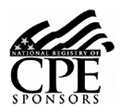President Joe Biden signed the Inflation Reduction Act (I.R.A.) into law on August 16, 2022. The legislation contains provisions that support clean energy production, affect health care costs, and fight climate change, along with measures that increase tax revenue, which are intended to reduce the deficit and curb inflation. Reviewed below are a number of these provisions and how the new law may apply to you.
Health Insurance Premium Tax Credits
The bill extends the expanded health insurance Premium Tax Credits initially bolstered in the American Rescue Plan Act (ARPA), which includes allowing higher-income households to qualify for the credits and boosting the subsidy for lower-income households, through the end of 2025. For 2021 and 2022, the ARPA expanded income eligibility by eliminating the phaseout for households with annual incomes above 400% of the federal poverty level (FPL). For those same years, ARPA also increased credit amounts by adjusting the percentage of annual income that eligible households may be required to contribute toward the premium. The percentages currently range from 0.0% to 8.5% of household income, with higher-income groups subject to larger percentages, as specified.
Clean Energy Tax Credits
In supporting clean energy production, the bill creates new tax credits and extends existing credits. Some of these credits include:
- Nonbusiness Energy Property - Current law provides a 10% tax credit for qualified energy-efficiency improvements and expenditures for residential energy property on a taxpayer’s primary residence through 2021. The credit is subject to a $500 per taxpayer lifetime limit.
The bill extends the tax credit through 2032—and makes additional modifications. The modifications increase the credit rate to 30% with an annual per-taxpayer limit of $1,200 and a $600 per-item limit. For geothermal and air source heat pumps, and for biomass stoves (newly eligible for the credit), there will be an annual credit limit of $2,000. Limits for expenditures on windows and doors are also increased.
- Residential Clean Energy Credit - The law prior to the I.R.A. provided a tax credit for the purchase of solar electric property, solar water heating property, fuel cells, geothermal heat pump property, small wind energy property, and qualified biomass fuel property. The credit rate was 26% through 2022 (it was 30% through 2019), and it was scheduled to be reduced to 22% in 2023 before expiring at the end of that year.
The bill extends the credit through 2034, restoring the 30% credit rate through 2032, and then reducing the credit rate to 26% in 2033 and 22% in 2034. Qualified battery storage technology is added to the list of eligible property.
- Clean Vehicle Credit – Under the law prior to the I.R.A., buyers of qualifying plug-in electric vehicles (EVs) could claim a nonrefundable tax credit of up to $7,500. The tax credit phased out once a vehicle manufacturer has sold 200,000 qualifying vehicles. The law prior to the I.R.A. also allowed, through 2021, a tax credit of up to $8,000 for fuel cell vehicles. (The base credit amount is $4,000, with up to an additional $4,000 available based on fuel economy.) Heavier fuel cell vehicles also qualified for up to a $40,000 credit.
The modified credit for clean vehicles is $3,750 for any vehicle meeting a critical minerals requirement, and $3,750 for any vehicle meeting a battery components requirement. The maximum credit per vehicle is therefore $7,500.
The modified credit is disallowed for certain higher-income taxpayers. Specifically, no credit is allowed if the current year or preceding year’s modified AGI exceeds $300,000 for married taxpayers ($225,000 in the case of head of household filers; $150,000 in the case of other filers).
Credits are allowed for vehicles that have a manufacturer’s suggested retail price of no more than $80,000 for vans, SUVs or pickup trucks, and $55,000 for other vehicles. Taxpayers are allowed to claim the credit for one vehicle per year.
The credit will not apply to vehicles acquired after December 31, 2032.
- Qualified Commercial Clean Vehicles - This provision creates a new tax credit for qualified commercial clean vehicles placed in service by the taxpayer during the year. The credit is the lesser of (1) 15% of the vehicle’s cost (30% for vehicles not powered by a gasoline or diesel internal combustion engine); or (2) the incremental cost of the vehicle relative to a comparable vehicle. Credit amounts cannot exceed $7,500 for vehicles weighing less than 14,000 pounds, or $40,000 otherwise. Eligible vehicles must have a battery capacity of not less than 15 kilowatt hours (7 kilowatt hours in the case of vehicles weighing less than 14,000 pounds) and be charged by an external source of electricity. Mobile machinery and qualified commercial fuel cell vehicles are also eligible for this credit. Qualifying vehicles must be depreciable property.
Only vehicles made by qualified manufacturers, who have written agreements with and provide periodic reports to the Treasury can qualify. Taxpayers are required to include the VIN on their tax return to claim a tax credit.
The credit will not apply to vehicles acquired after December 31, 2032.
Corporate Tax Reform
The bill revives the corporate alternative minimum tax (AMT), which was eliminated by the 2017 tax law commonly known as the Tax Cuts and Jobs Act, albeit in an altered form. The new corporate AMT is calculated as 15% of the corporation’s “adjusted financial statement income” for the year and is payable to the extent it exceeds a corporation’s regular income tax liability for the year. Adjusted financial statement income is generally equal to the amount of net income or loss that the corporation reports on its applicable financial statements, as adjusted for certain items. The AMT will only apply to corporations with an average annual adjusted financial statement income of $1 billion or more for the three prior years and is effective for tax years beginning after December 21, 2022.
The bill also creates a 1% excise tax on the value of stock repurchases made by a covered corporation during the taxable year, net of new issuances of stock, effective for repurchases after December 31, 2022. Excluded from the tax is repurchased stock that is subsequently contributed to an employer-sponsored retirement plan, an employee-stock ownership plan (ESOP), or similar plan.
Internal Revenue Service
The bill includes additional funding of $80 billion over the next ten years. The understanding is that the additional funds will be used to increase staff, modernize outdated computer systems, improve operations, and increase tax enforcement. Since the signing of the bill, government officials have stated that individuals making less than $400,000 will not see an increase in the rate of audits. Instead, the IRS focus with increased tax enforcement will be on “high-end noncompliance” individuals.
Conclusion
The I.R.A. is a scaled down version of a bill passed by the House last November, known as the Build Back Better Act. Several measures in that bill that did not make it into law were focused on infrastructure and COVID-era expansion of credits. Another major item in the Build Back Better Act that was excluded from the I.R.A. is the restoration of the full deduction for individual deductions pertaining to state and local taxes (the “SALT deduction”).
Additional Details
Cost: No fee required.CPE: Eligible for up to 2.4 CPE credits (1.8 credit in Accounting and .6 credit in Tax)
Prerequisites: None
Who Should Attend? CFOs, CEOs, business owners and financial executives
Advanced Preparation: None
Program Level: Update
Delivery Method: Group Internet-based
Author

Dannell R. Lyne
Managing Director
CBIZ Marks Paneth
dannell.lyne@cbiz.com
Dannell R. Lyne is a Managing Director located in CBIZ Marks Paneth's Purchase, NY office, who has been serving clients since 1997. A CPA and MST, he brings extensive experience in tax planning and compliance for family-owned businesses, nonprofit organizations, alternative investment funds, and high-net-worth individuals – specifically executives in the financial services industry, investment partnerships and international matters.
Prior to joining CBIZ Marks Paneth, Dannell was a Tax Director with a Westchester County, NY-based venture capital firm, where he successfully helped manage fund families with assets of over $1.5 billion. He brings additional experience from his time working at a Big Four accounting firm.

FirstName LastName
Title
Service Line
EMAIL

FirstName LastName
Title
Service Line
EMAIL

FirstName LastName
Title
Service Line
EMAIL

FirstName LastName
Title
Service Line
EMAIL
Agenda
| XX:XX AM | Activity Name |
| XX:XX AM | Activity Name |
| XX:XX AM | Activity Name |
| XX:XX AM | Activity Name |
| XX:XX AM | Activity Name |
| XX:XX AM | Activity Name |
| XX:XX AM | Activity Name |
Testing Testing
Testing Testing

